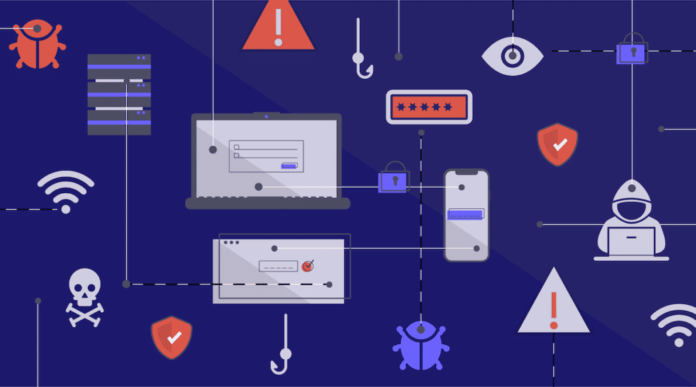Reviews are the compass that guides us through the vast sea of information, leading us to the treasures of knowledge and wisdom.
In the digital age, establishing an online writing presence through a blog or website has become crucial to sharing your ideas. However, as you make your mark on the internet, you expose yourself to potential threats. Those are cyberattacks, data breaches, and hacking attempts. Securing your online writing presence is an option and a necessity in safeguarding your reputation. This article will explore the essential steps to protect your blog or website from various online threats. This will ensure your digital presence remains secure and resilient.

For students, understanding the importance of securing their digital presence is paramount. Whether maintaining a personal blog or contributing to academic websites, online presence represents them and their intellectual property. Students can create a safer environment by adhering to best practices, such as using strong passwords. Remember, you can visit the best paper writing service writer24.com to help you stand out. Additionally, awareness of phishing attempts and social engineering tactics can help them.
They will be able to protect their personal information and maintain the integrity of their work. Embracing cybersecurity as an integral part of the journey. It ensures that students can focus on expressing their ideas and passions.
1. Choose a Reliable Hosting Provider
Securing your online writing presence begins with selecting a reputable provider. Research and compare various hosting services. Consider factors such as uptime guarantees, security features, customer support, and user reviews. Opt for a provider that offers SSL (Secure Sockets Layer) certificates. Find ones that ensure encryption between your website’s server and your visitors’ browsers. This SSL encryption helps to prevent hackers from intercepting sensitive information.
2. Keep Software and Plugins Updated
Regularly updating the software and plugins on your blog or website is a fundamental step in bolstering your online security. Content management systems release security patches and updates to address vulnerabilities. Ensure that you install these updates promptly to prevent potential exploits. Additionally, uninstall any unused or outdated plugins. They can be entry points for hackers looking to breach your site’s security.
3. Implement Strong Authentication Measures
Strengthening the authentication process is crucial to safeguard your online writing presence. Use complex and unique passwords for all your accounts and avoid reusing them across different platforms. Consider implementing two-factor authentication (2FA) to add an extra layer of security. 2FA requires users to provide a second form of verification. This might be a temporary code sent to their mobile devices, reducing the risk of unauthorized access.
4. Regular Backups are a Must
Data loss can be catastrophic for any website owner if you’ve invested significant time and effort into it. Regularly backing up your blog or website is an effective way to mitigate such risks. Choose a reliable backup solution and schedule automatic backups. This ensures your data is safe in case of a security breach or other technical issues.
5. Secure Your Login Page
The login page is one of the most vulnerable areas of any website or blog. Implementing security measures can significantly reduce the risk of attacks. Consider creating a custom username instead of using the default “admin.”
6. Install Security Plugins
Leverage the power of security plugins designed to protect your blog or website. These plugins can help you monitor for suspicious activities. They will help you block malicious IP addresses and scan your site for potential vulnerabilities.
7. Protect Against DDoS Attacks

Distributed Denial of Service (DDoS) attacks can cripple your website’s performance and accessibility. It can overwhelm your server with a massive influx of fake traffic. Consider investing in a DDoS protection service to mitigate these attacks. They will keep your site online and accessible during such incidents.
8. Monitor for Malware
Malware can be injected into your website without your knowledge. It can cause significant harm to your online writing presence and your visitors. Regularly scan your blog or website for malware and suspicious files. You can do it by using security plugins or online scanning services. If malware is detected, immediately remove it and fix any vulnerabilities that may have allowed it to enter your site.
9. Educate Yourself and Your Team
Keeping your online writing presence secure is a collective effort. Educate yourself and any team members on best practices for online security. Stay updated on the latest threats and vulnerabilities. Encourage everyone involved in managing your website to exercise caution.
10. Educate Yourself
The human element is one of the most overlooked aspects of securing your online writing presence. Educating yourself and your team about social engineering attacks is vital. A simple human error can lead to a significant security breach, even with the best technical defenses. Encourage a culture of cybersecurity awareness. Everyone involved should understand the importance of maintaining confidentiality and following proper protocols.
11. Regular Monitoring
Regularly monitoring your website’s activity and performance is essential for detecting security issues. Utilize website analytics and security tools to keep track of login attempts. If you notice an unusual surge in traffic or repeated failed login attempts, it could be a sign of a potential attack. Additionally, set up email alerts or notifications to receive real-time updates.

12. Website Firewall
Finally, consider investing in a website firewall. It will help further enhance your online writing presence security. Some hosting providers offer built-in WAF services. You can also explore third-party WAF solutions for more robust protection. Incorporating a WAF into your website’s security infrastructure adds an extra layer of defense that complements your existing security measures and helps safeguard your valuable content and user data.
Conclusion
Securing your online writing presence is critical in today’s digital landscape. By following the steps outlined in this article, you can protect your blog or website from potential threats. , This ensures a safe and resilient platform for your valuable content. Remember, a secure online presence not only protects your reputation. It also ensures that your voice reaches a broader audience without interruption or compromise.



































